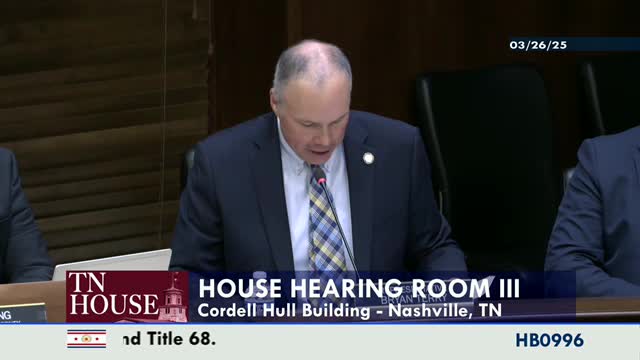Article not found
This article is no longer available. But don't worry—we've gathered other articles that discuss the same topic.

Votes at a glance: Tennessee House Health Subcommittee, March 26, 2025

Committee backs bill barring TennCare reimbursement denial over immunization status, with carve‑outs for specialty care

Subcommittee backs standards for recovery residences, requires national certification and oversight

House subcommittee advances bill to lift certificate‑of‑need for hospitals amid rural access debate

